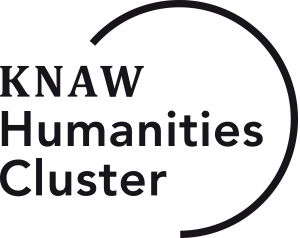Contact us
Helmer Helmershelmer.helmers@huc.knaw.nl+31 20 224 68 00
More info
Vacancies
All research projects of NL-Lab will be posted online momentarily. At the moment we have the following ongoing projects:
Art DATIS
Art DATIS (Digital Art Technical sources for the Netherlands: Integration and improvement of sources on glass for a Sustainable future) is a four-year research project (2018-2022) within the Netherlands Organisation for Scientific Research’s (NWO) Big Data / Digital Humanities program.
How did a twentieth-century Dutch glass artist use historical sources for technical and educational innovation? We answer that question by digitising the archives of glass artist Sybren Valkema (1916-1996) and integrating them into RKD and ARTECHNE databases, linking them to art historical and technical data worldwide.
Inventing Public Diplomacy in Early Modern Europe
Inventing Public Diplomacy in Early Modern Europe. How Printed Media Shaped Dutch International Relations, 1568-1713. NWO VIDI-project (2019-2024)
How do communication revolutions influence international relationships? This project investigates the role of printed matter in Dutch foreign relations between 1568 and 1713. By analysing the diplomatic use of new media in the past, it shows how these contributed in the past to the transformation of European relations.
Understanding Knowledge in the Low Countries
Understanding Knowledge in the Low Countries, 1500-1900. NIAS-Descartes Theme Group 2019/2020.
This theme group investigates how the understanding of knowledge took shape in processes of acquisition, ownership, attribution, use, and institutionalisation in the early modern Low Countries.
Eastbound
Eastbound. The distribution and reception of translations and adaptations of Dutch-language literature, 1850-1990.
The Eastbound project focuses on the international circulation of literature in Dutch. The project shows that Dutch-language literature was an important export product. Eastbound zooms in on the German-speaking regions between 1850 and 1990, but it also investigates how the Polish, Czech and Hungarian regions familiarised themselves with Dutch literature through German translations or otherwise.
History of philology
This project investigates how the practice of linguistics and literature, history and archeology have developed in the Netherlands from the end of the eighteenth century until shortly after the Second World War. It wants to show how the autonomisation and professionalisation of the literary scholar took place in the nineteenth and the first half of the twentieth century, and through which ideological, art-theoretical and socio-economic circumstances these developments can be explained. In doing so, it also wants to bring to light the influence that professionalisation has had on the formation of the literary repertoire.
History of literary education
This project wants to show how education in Dutch literature in the decades before the Second World War was used as an instrument for the formation of the cultural repertoire in the Netherlands, partly in light of the pillarisation and the contradiction between knowledge of the national canon and personal development.
Edition projects
Correspondence Allard Pierson (1831-1896)
This project realises an online edition of the letters from the prominent theologian and cultural historian Allard Pierson (1831-1896).
Correspondence A.L.G. Bosboom-Toussaint
This project realises a digital edition of the correspondence of Geertruida Bosboom-Toussaint (1812-1886), which means the 1561 preserved letters sent by her, both before and after her marriage.
Willem de Clercq Diary, 1811-1844
This project realises the transcription and online publication of the diaries of Willem de Clercq (1795-1844). These are completely unique for the Netherlands, not only because of the size – estimated at around 30,000 pages – but also with regard to the depth and scope of the notes. The reader sees the vicissitudes of a human life pass by, and at the same time the political, social, cultural and technological changes of an entire era.








